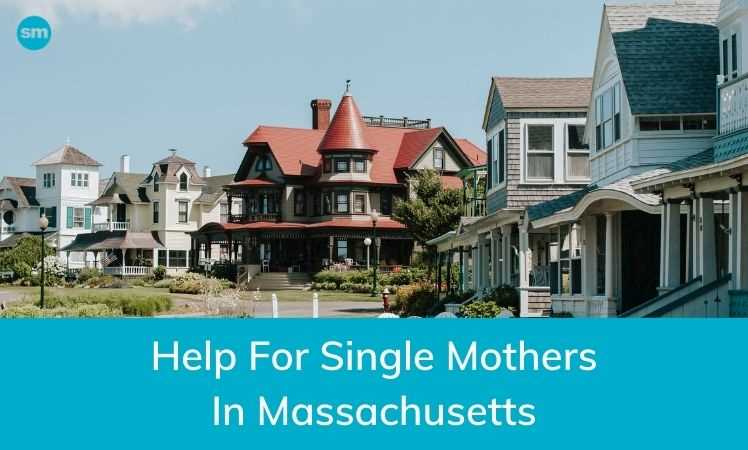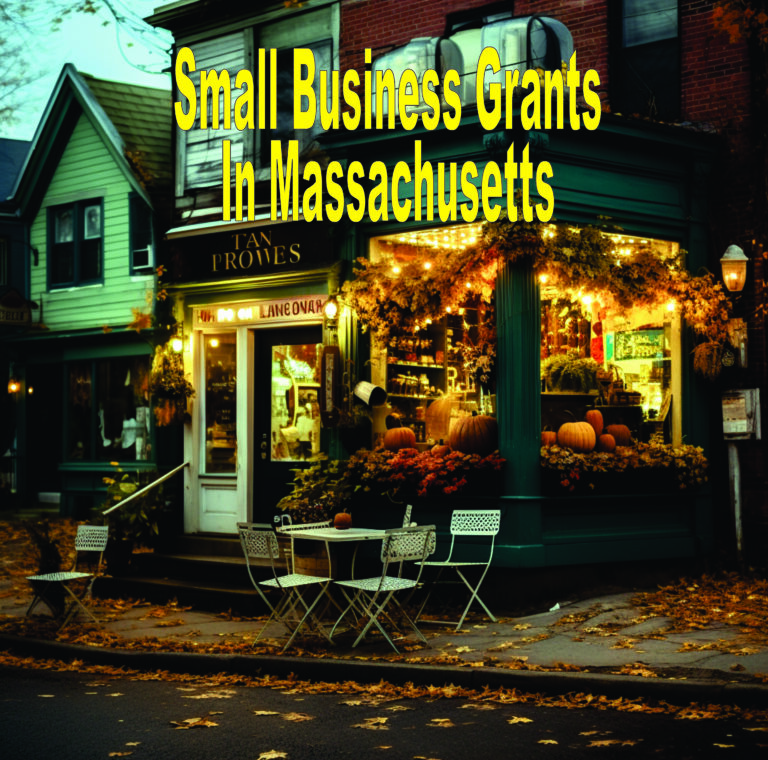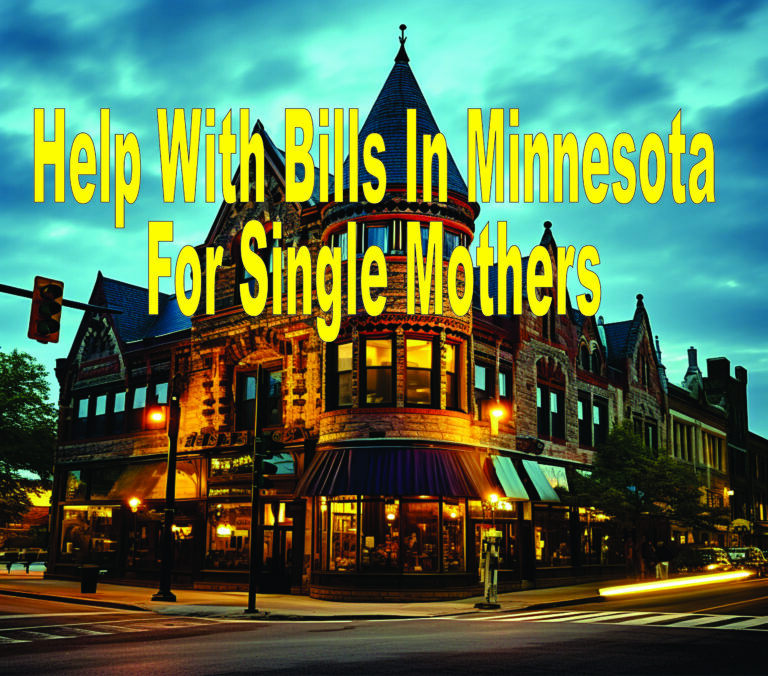Help for Single Mothers in Massachusetts

Last Updated on May 23, 2024 by Kathy
Massachusetts, despite its position as the eighth-best state in the United States, has developed several programs to help low-income families and single mothers. You will find a few of them described in detail as you continue reading.
The economy of Massachusetts has always been a strong point. The fields of health and education services are the largest employers in Massachusetts today. Manufacturing, particularly computer and electronic goods, is another top industry. Massachusetts’ technology industry has grown in recent years, and it is one of the most concentrated industries in the country. Tourism is also a major economic force in Massachusetts, with its historical attractions and beautiful beaches on Cape Cod, Nantucket, and Martha’s Vineyard.
Massachusetts set the standard for legislative reform in other states. It was the first state to provide universal health coverage with a 2006 plan that inspired the Affordable Care Act of former President Barack Obama. Massachusetts was the first state in the country to legalize homosexual marriage, and it was the second to pass laws against discrimination against lesbians, gays, or bisexuals.
Transitional Aid to Families with Dependent Children
Massachusetts Transitional Aid to Families with Dependent Children Program offers temporary cash assistance as well as supportive services to individuals, children, and their families. Everyone has the right to apply for any type of assistance administered by Transitional Assistance.
To qualify for the program, you need to be a Massachusetts resident, pregnant, or responsible for an under-19-year-old child, a U.S. citizen, a legal immigrant, or a permanent resident. You also must have a very low or low income and either be underemployed (working at very low wages) or unemployed.
Summer Meal Program for Families in Need
In Massachusetts, more than 229 170 children are food insecure. Food insecurity can increase as summer approaches if you don’t have school meals. The Summer Food Service Program has been providing food assistance to low-income Massachusetts families since 1968. The program offers free nutritious meals for children aged 18 and under at SFSP sites during the summer school break. SFSP offers a variety of nutrition resources for families throughout the state.
Eligibility for the program is determined either by school data or census information. SFSP meals are available in schools where at least 50 percent of students qualify for free or reduced-price meals. A community can also be eligible if 50% of its children are below the federal poverty line or at 185%.
Healthcare Programs
MassHealth is the name of a program that combines Medicaid and CHIP in Massachusetts. MassHealth members can get hospital stays, prescription drugs, and doctors’ visits. They require that you meet the following requirements:
- MassHealth is only available to residents of Massachusetts. Massachusetts residency is met if you are a resident of Massachusetts with or without a fixed address.
- Your citizenship or immigration status needs to be verified in order to get the maximum MassHealth, Health Safety Net, or Children’s Medical Security Plan benefits.
National School Breakfast and Lunch Program
The School Breakfast Program offers funding to schools so that they can offer students a healthy breakfast every day. Federal funds are provided to schools for every breakfast that is served as long as it meets nutrition standards. Massachusetts gives additional funding to schools per meal served to students who qualify for reduced or free meals.
The National School Lunch Program’s (NSLP) goal is to provide nutritious meals at school every day in order to protect children’s health and well-being. NSLP funds schools so they can offer a healthy school lunch.
The federal government provides funds to schools for every lunch that is served, as long as it meets nutrition standards. Federal and state funds are provided to Massachusetts schools for every meal that is served to students who qualify for free or reduced-price meals due to their family income.
Free Diapers for Low-Income Families
In many Massachusetts communities, diaper banks and other free diaper programs are available. Families can receive up to 30 diapers per child per month, depending on where they live. You can apply for diapers by contacting the diaper program or a local family service agency.
Massachusetts DTA Child Care
DTA Child Care provides childcare services in Massachusetts for both former and current TAFDC recipients. Priority is given to current TAFDC recipients. Former TAFDC beneficiaries get child care immediately, but they may be required to pay a fee depending on their income and family size. You can apply for childcare assistance at your local Department of Transitional Assistance office. Call 1-800-249-2007 or your TAFDC caseworker for more information.
Families with low incomes who are not eligible for TAFDC and need financial assistance to pay for child care can apply for Early Care and Education Financial Assistance. This program is only available to families with an income that does not exceed 50% of the State Median Income (SMI).
Call your local Child Care Resource and Referral Agency (CCR&R), or dial 2-1-1 to be placed on a statewide centralized wait list.
Massachusetts Good Neighbor Energy Fund
The Good Neighbor Energy Fund offers financial assistance for Massachusetts residents that are not eligible for any other utility assistance program. Visit their website to learn more about eligibility requirements and where you can apply for assistance.
Massachusetts MASSGrant
The MASSGrant program is Massachusetts’ flagship need-based award for undergraduate students residing in Massachusetts. The award amounts are determined by the EFC of each applicant and the type of institution. You must complete and submit your FAFSA by May 1, AND have a Family Expected Contribution (EFC), of at least $5,486.
Students who attend one of Massachusetts’ 15 public community colleges can now apply for MASSGrant Plus, a new grant program that provides funds to the most needy students in the state.
Massachusetts Part-Time Grant Program
The Massachusetts Part-Time Grant Program, for working adults or part-time non-traditional students, is an alternative to MASSGrants. It has many of the exact same eligibility requirements.
Students are awarded based on their exceptional financial need, as determined by the FAFSA. The amount of the award depends on the type of institution the student attends. It can range from $200 up to a maximum of $2,000 depending on the type.
Bottom Line: Help For Single Mothers In Massachusetts
There is a big variety to choose from when it comes to asking for assistance. The federal government and nonprofits work hard to support the community they are in, the best that they can. To learn more about other assistance offered to help single mothers in the state of Massachusetts, visit these articles:






